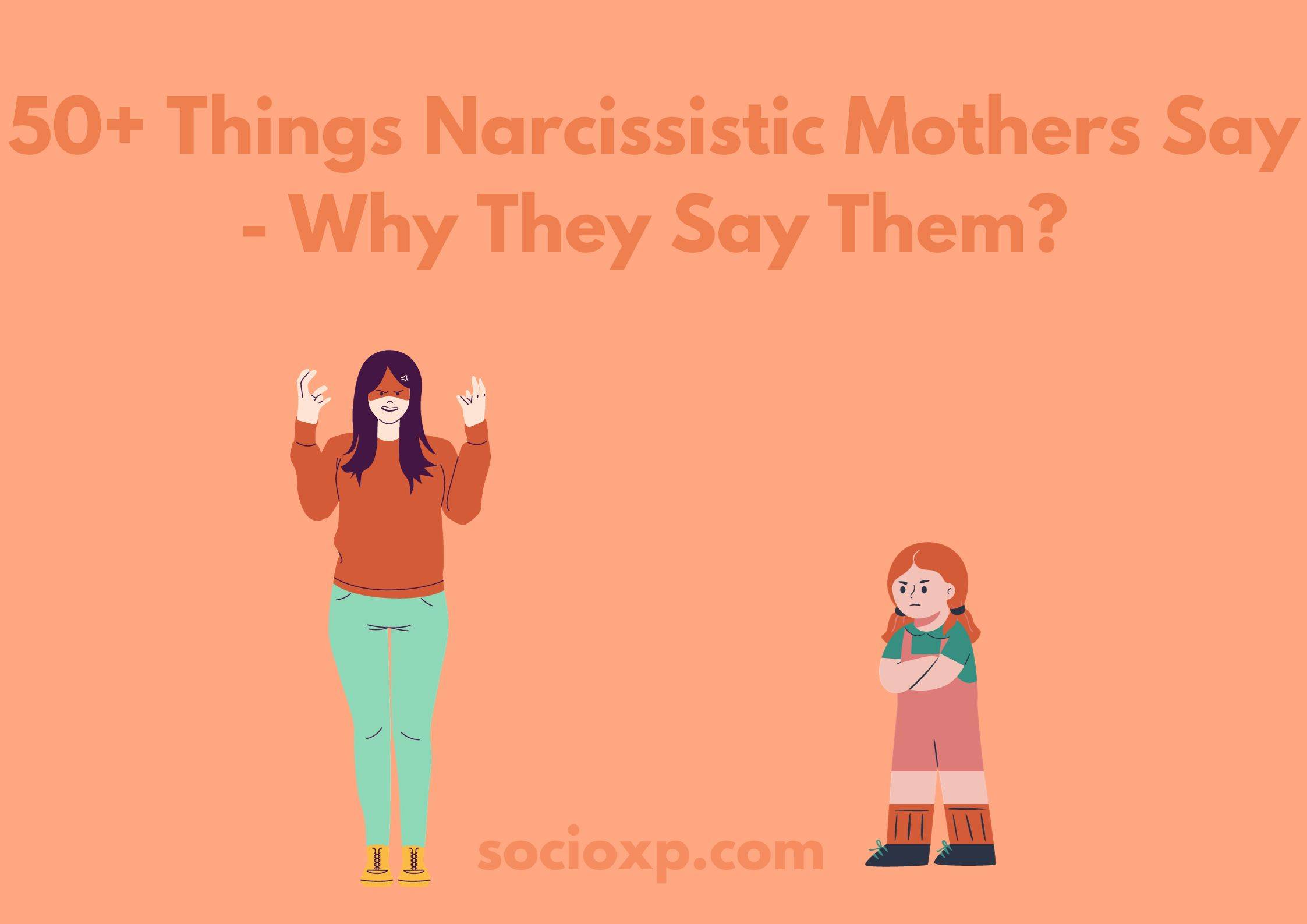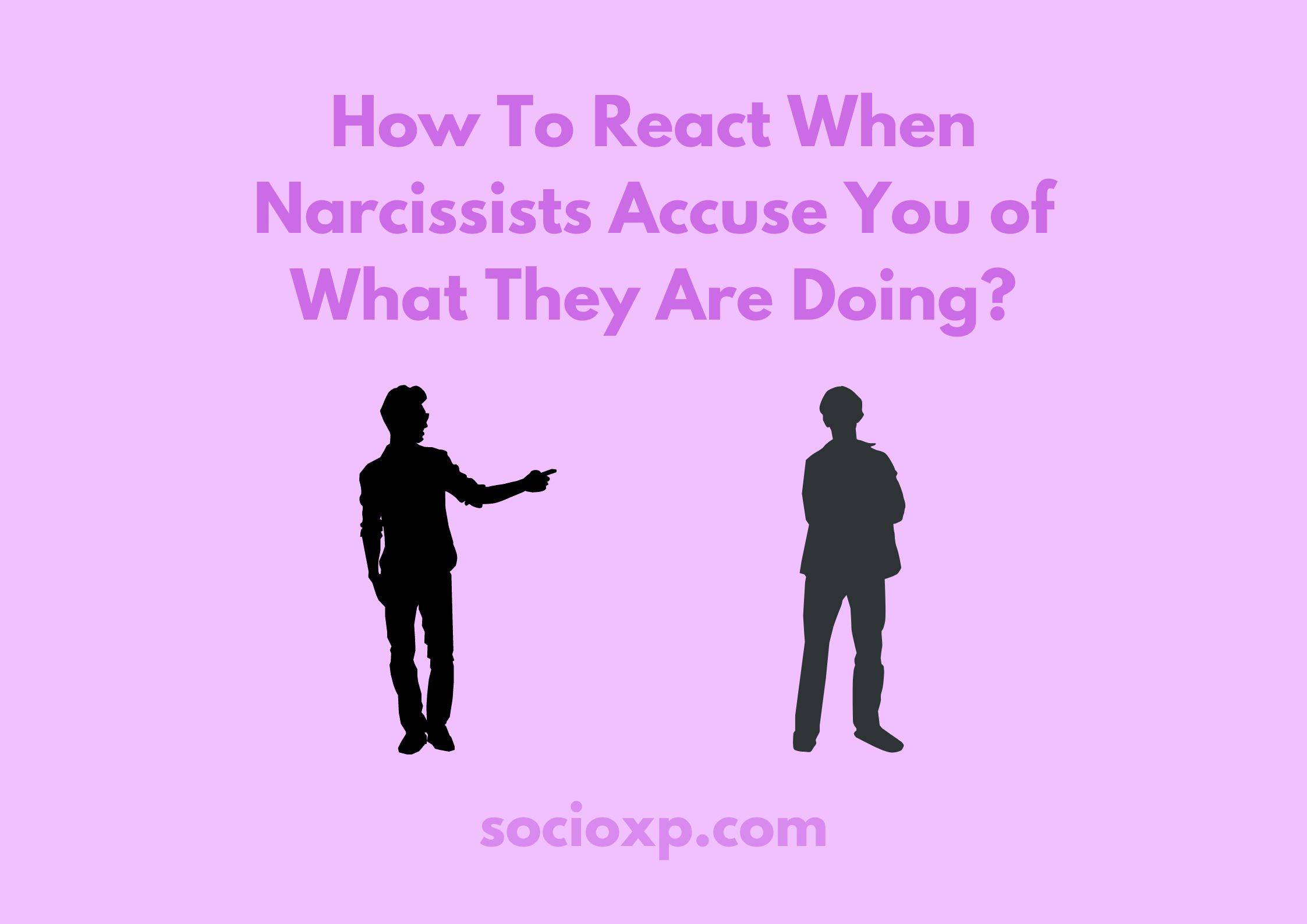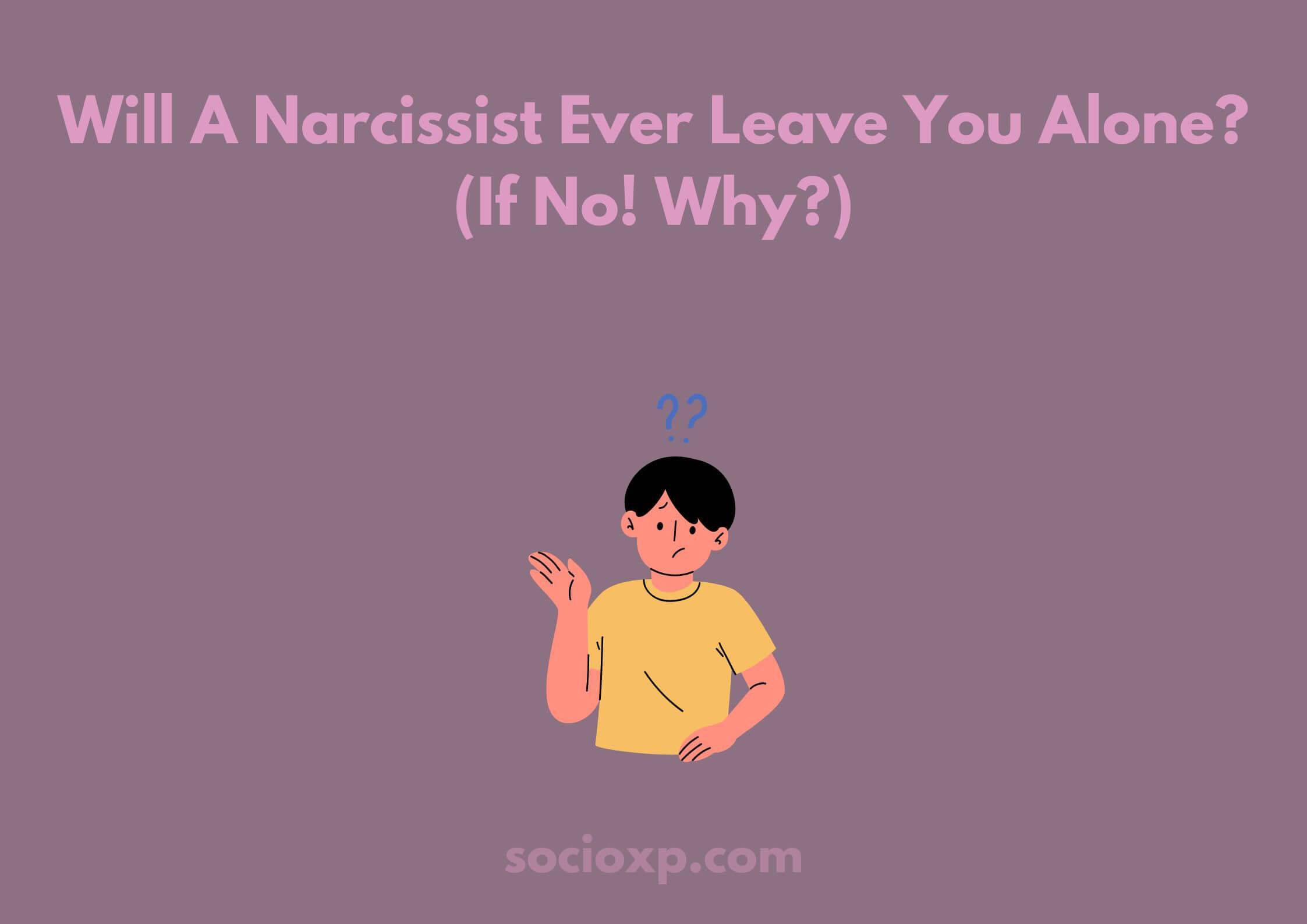Does a narcissist ever truly regret hurting people? (Researched Among Narcissists)
Does a narcissist ever truly regret hurting people? One of the hallmark features of narcissism is a lack of empathy or concern for others people’s feelings and well-being. Narcissists tend to view others as extensions of their own selves. They struggle to understand or connect with others’ emotional experiences, which can lead to insensitive or hurtful behaviors.
According to mental health experts, narcissists typically do not feel genuine remorse or regret for the pain they have caused others. They may apologize or express shallow regret to manipulate or gain forgiveness from their victims, but they do not internalize their actions as wrong or harmful. Instead, they blame others or justify their behavior to avoid taking responsibility for their actions.
Narcissistic Personality Disorder is a condition where individuals have an inflated sense of self-importance, self-worth, and a constant need for admiration from others. They are often characterized as manipulative, exploitative, and lacking empathy for others. They tend to lack remorse and feel entitled to hurt others without experiencing any guilt or shame.

The question yet pertains, “Does a narcissist ever truly regret hurting people?”,
The answer to this question cannot be answered straightforwardly and immediately without knowing the context. The answer depends on various factors, including the severity of the narcissistic personality disorder, the context of the hurt caused, and the willingness and self-awareness of the individual to the insight. Research has shown that some individuals with narcissistic traits may feel a temporary sense of regret, it is often genuine or long-lasting.
One study published in the Journal of Personality and Social Psychology found that individuals with narcissistic personality disorder tend to experience a temporary decline in self-esteem when confronted with their harmful behavior towards someone else. However, this decline in self-esteem was found to be short-lived, and the individual quickly reverted to their typical narcissistic tendencies. In simple words, a narcissist might feel bad for hurting someone in the moment or in some instances out of many, but it is unlikely that they will make any long-lasting changes in their behavior or take genuine steps toward making any amends in their way of treating others.
A study published in the Journal of Personality Disorders; observed the relationship between empathy and narcissistic traits and found that individuals with high levels of narcissistic traits also displayed lower levels of empathy. This clearly suggests that narcissists may not experience genuine regret or empathy for hurting others.
Another study published in Personality Disorders: Theory, Research, and Treatment, examined the relationship between empathy and narcissistic personality disorder and found that individuals with high levels of narcissistic traits had a diminished capacity for empathy. This suggests that narcissists may lack the ability to truly regret hurting others due to their inability to feel empathy for others.
The Nature of Narcissism
Narcissism is a complex personality trait that is often misunderstood or misdiagnosed. It is characterized by a pattern of grandiosity, a sense of entitlement, and a lack of empathy toward others. Narcissists hold an overestimated view of themselves and their abilities, believing that they are superior to those around them. They may seem charming, confident, and charismatic on the outside, but beneath the surface of the falseness, there is their true side that is insecure, fragile, and always prone to emotional outbursts.

Research done by varied psychology and mental health experts suggests that narcissism is a continuum rather than a binary construct, meaning that individuals may display different levels of narcissism, ranging from healthy to pathological. The continuum of narcissism is arbitrary where healthy self-esteem ceases to exist and pathological narcissism begins and this completely depends on the individual. There are different types of narcissism including two most commonly known, Grandiose narcissism and Vulnerable narcissism.
Grandiose Narcissism – This narcissism is characterized by an exaggerated sense of self-importance, dominance, and absence of humility.
Vulnerable Narcissism – On the other hand, this narcissism is marked by a fragile sense of self-esteem, hypersensitivity to criticism, and an excessive need for approval and validation.
Does a narcissist ever truly regret hurting people?
Narcissism refers to an excessive or exaggerated sense of self-importance or entitlement, coupled with a lack of empathy towards others. Narcissistic individuals tend to have an inflated self-image and a constant need for attention, validation, and admiration from others. They may also display manipulative, exploitative, and controlling behaviors toward others. When relationships with narcissistic individuals break down, it is likely that they may cause hurt and harm to those around them.
But they do not feel deeply rooted regrets which may not allow them to acknowledge other people’s pain after they hurt them. Due to a lack of empathy for others, they can easily hurt others, without a single hint of regret and do not even feel responsible for it.
Narcissism and Lack of Empathy
One of the hallmark features of narcissism is a lack of empathy or concern for others people’s feelings and well-being. Narcissists tend to view others as extensions of their own selves. They struggle to understand or connect with others’ emotional experiences, which can lead to insensitive or hurtful behaviors.

What is Empathy?
Empathy is the ability to understand others and share their feelings. It is the capacity to put oneself in another person’s shoes and see things from their perspective, to feel what they are feeling, and to respond accordingly. Empathy allows individuals to connect with others on a deeper level, build stronger relationships, and to provide support and understanding in times of need.
Some researches done by mental health experts also suggest that narcissists’ lack of empathy is rooted in their underlying self-centeredness, which leads them to prioritize their own needs and desires over others. Narcissists may struggle with emotional regulation and impulse control, which may lead to aggression or abuse toward others. When narcissistic relationships break down, it is a naturally given fact that others around them would experience trauma, emotional distress, and pain.
Narcissism and Lack of Regret
The capacity for regret is an important aspect of empathy, as it involves recognizing one’s own harmful actions and expressing remorse for the harm caused due to those actions. Narcissists struggle to express genuine remorse for their actions and hardly regret their injurious actions to others, concluding that they do not regret their actions toward other people even though those actions may be life-changing in a negative way for others. This concluding fact is also been mentioned in the above-presented studies.
Understanding regret
Regret is an emotion characterized by disappointment or sadness over any past actions or decisions, accompanied by a sense of remorse, guilt, or loss. Regret can stem from missed opportunities, mistakes, poor judgments, and harmful actions and can create negative feelings like anger, shame, and despair.
Moreover, the grandiose nature of narcissists may ignite a sense of entitlement and a belief that they are far more better than others to be criticized. This may lead them to place blame on others for their actions, which may minimize their hurt, and rationalize their actions rather than accepting the responsibility for their wrongdoing. This way narcissists avoid feeling guilty or shameful for their actions, thus lack experiencing genuine regret for the inflicted harm on others.

The grandiose nature of narcissists may allow them to feel regret and remorse as compared to grandiose narcissism. This is because their feelings of insecurity and fear of rejection make them a little more sensitive towards other people, their opinions, their criticisms, emotional reactions, and any kind of remorseful actions. They have a heightened sense of awareness which makes them more vulnerable to the pain and harm caused by them to others.
Not all narcissists exhibit such tendencies though. Some individuals with narcissistic personalities may recognize that their behavior has harmed others and may feel genuine remorse for their actions. This level of self-awareness can be an important step towards them making changes in their behavior. It is also crucial to note that such cases may tend to be rare in occurrence, and also it depends on the severity of the disorder and the level of insight the individual is capable of.
Narcissists and their transactional relationships
Narcissists are known to have transactional relationships where they only engage in a relationship if they can only benefit from it. In such a relationship their primary objective is to gain something from the other person, such as admiration, money, success, attention, and much more.
Narcissists believe that they are entitled to special treatment and attention, and often demand the same from their partners, family members, and friends. They solely focus on their needs, desires, and emotions and make everything about them in the relationship which can make others feel neglected, unimportant, or irrelevant in the relationship with them. Narcissists’ lack of empathy makes it worst as they ignore or dismiss their partner’s concerns and also deny to acknowledge the mistake they made or make.

Transactional relationships with a narcissist can be exhausting and emotionally draining, as the narcissist only engages in a relationship if there is something they desire from someone. They may be charming, charismatic, and over-romantic in the initial stages of the romantic relationship, but with the progress of the relationship, their true motives and intentions may start becoming clearly visible with the help of their manipulative, abusive, toxic, and dangerous behavioral tactics.
Narcissists and their fake apologies
Narcissists are full of themselves, so they never really care for what others feel. They always just keep in check that they are not somehow embarrassed or insulted by others. Narcissists do not actually care when they hurt someone, they do not even realize that they have hurt someone unless and until that person leaves them, somehow representing their discontentment with the narcissist or just stopping being available to the narcissist.
Narcissists often present non-apologies in the form of statements like “I’m Sorry You Feel That Way” or “Do you really need an apology for this?”
Narcissists only apologize when they realize that the other person is severely hurt and that it might affect their narcissistic supply. It is only when their supply source starts drifting, one might hear an insincere, ingenuine, and half-hearted apology. Also, narcissists do not even try to change themselves or learn from their past experiences. They just adapt to this toxic cycle of doing something wrong, ignoring it, not even caring about the other person’s feelings and only and only apologize when the argument or the disagreement becomes serious or lengthy and when it starts affecting their dose of narcissistic supply.

Narcissists and apologies are two opposite poles of a magnet that always repel each other. Narcissists continue this toxic cycle of wrongdoings and try to cover it up with just a few insincere words which they state like they are doing a favor by apologizing. They do not mean to give sincere apologies at all, it is just one of their unconcerned attempt to just keep the relationship going to gain what they need and desire.
Narcissists feel that apologizing may hurt their pride as it will prove their wrongdoing or bring a negative light on them. Narcissists always present themselves as someone who is perfectly cast, and someone who is incapable of making mistakes. So when it comes to apologizing they would be insincere with their efforts or just ignore providing an apology altogether.
Narcissists would never choose to apologize in the first place, but if at all a narcissist has to present an apology somehow they would simply either provide insincere apologies when it becomes really really necessary for them or they would just provide statements that are more inclined towards their gaslighting technique.
In Conclusion
Does a narcissist ever truly regret hurting people? – The answer to this question is unfortunately complicated. While some individuals with narcissistic traits may feel a temporary sense of regret, for most, which is unlikely to be genuine or long-lasting. It is important to remember that narcissistic personality disorder is a complex condition associated with mental health, that can manifest in a variety of ways and may require professional support and assistance. Understanding the behavior of a narcissistic individual can be challenging, but it is essential to remember that their hurtful actions are not a reflection of the person they hurt, but rather a symptom of the condition they have.
It is also true that they do not feel deeply rooted regrets which may not allow them to acknowledge other people’s pain after they hurt them. Due to a lack of empathy for others, they can easily hurt others, without a single hint of regret and do not even feel responsible for it.
But not all narcissists exhibit such tendencies though. Some individuals with narcissistic personalities may recognize that their behavior has harmed others and may feel genuine remorse for their actions. This level of self-awareness can be an important step towards them making changes in their behavior. It is also crucial to note that such cases may tend to be rare in occurrence, and also it depends on the severity of the disorder and the level of insight the individual is capable of.
- How To Make A Narcissist Discard You And Leave You Alone? - March 21, 2024
- Narcissistic Supply: 9 Signs You May Be Someone’s Narcissistic Supply - March 11, 2024
- Narcissistic Abuse And Anxiety – 11 Symptoms of Narcissistic abuse-induced anxiety - March 9, 2024


